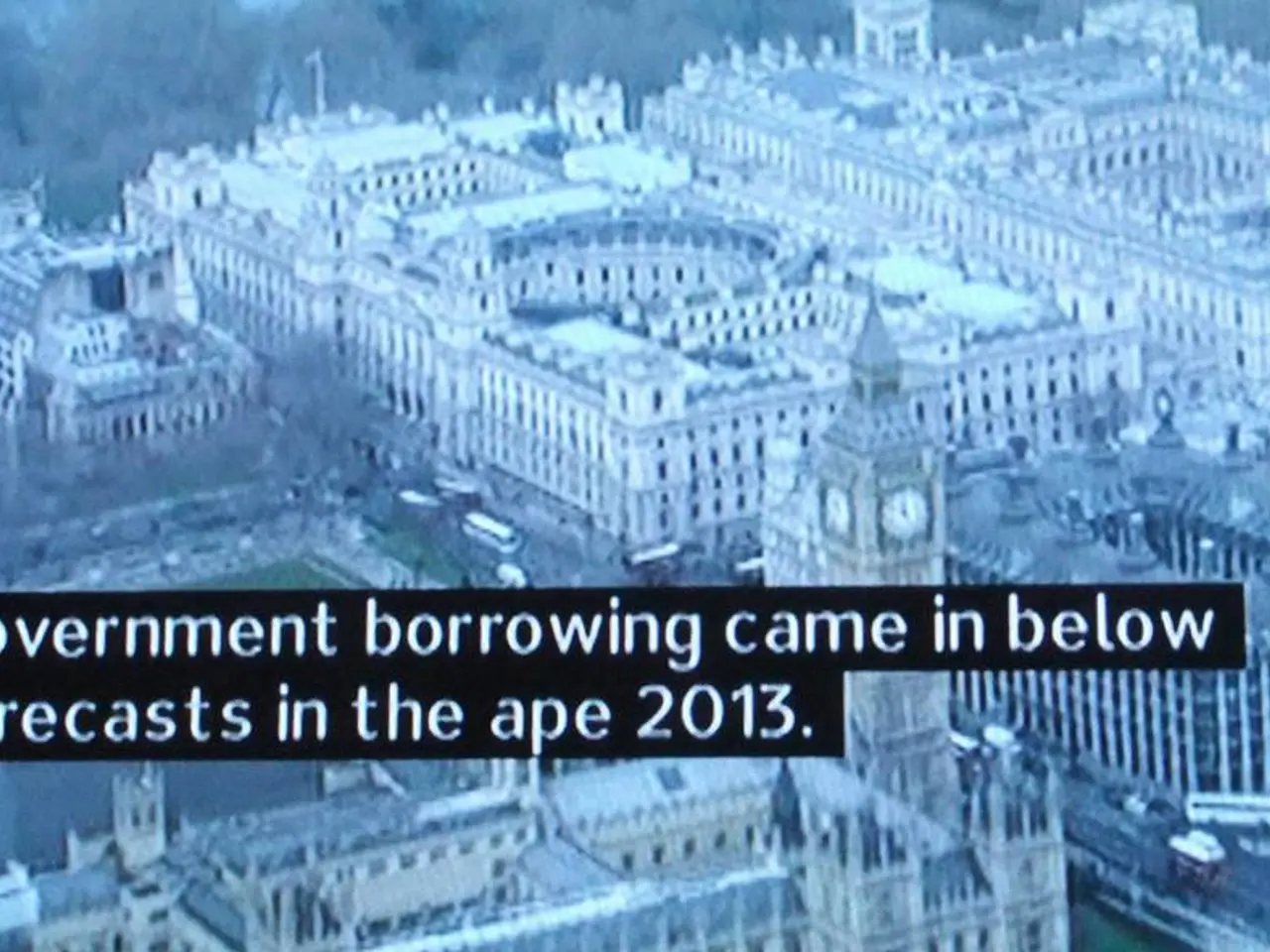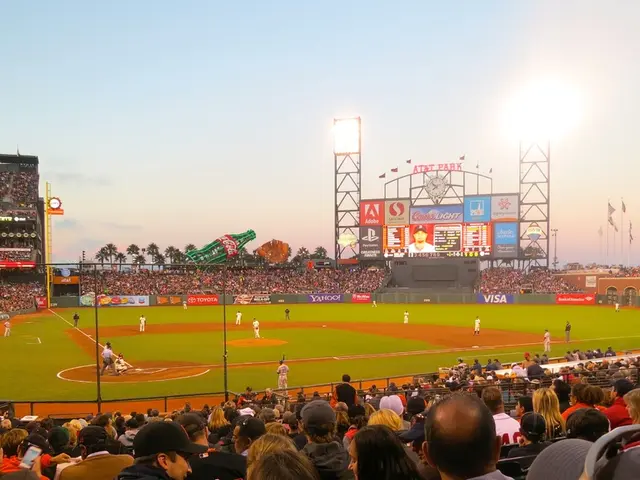Expansion of the UAE's Housing Sector in 2025 Through Notable Projects and Programs for Citizens
The United Arab Emirates (UAE) housing sector is experiencing a significant boom, backed by strong government initiatives, rising homeownership demand, and major housing projects.
Market Growth and Government Support
The overall residential real estate market value is projected to reach approximately $143 billion in 2025, with expectations of growing to $217 billion by 2030 at a Compound Annual Growth Rate (CAGR) of 8.66%. Residential transaction volumes are forecasted to increase annually by 2.66% through 2029, reflecting robust investor confidence and urban development [1][2].
Continued liberal visa rules, proactive policy reforms, and infrastructure development post-Expo 2020 are boosting housing demand. Visa extensions and real estate financing initiatives also enhance investor confidence [1][2][3]. Strategic urban plans in Abu Dhabi, Dubai, and Ras Al Khaimah aim to deliver livable, connected, and mixed-use communities [1][2][3].
Homeownership Rates and Demographic Shifts
Population growth and increasing millionaire migration contribute to expanding housing demand and homeownership aspirations. Ras Al Khaimah alone expects its population to grow from 0.4 million to 0.65 million by 2030, fueling demand for around 45,000 new residential units [1][3][5].
Major Housing Projects and Markets
Dubai's prime residential areas like Palm Jumeirah and Downtown continue to see luxury property growth, with 10-15% price increases anticipated. Abu Dhabi shows double-digit growth in real estate transactions, with unit sales up 11% in volume and luxury branded residences experiencing record growth and mortgage transactions increasing by 49% year-on-year [4]. Ras Al Khaimah is rapidly developing with major projects by both global and local developers, driving a real estate boom aligned with sustainable development and quality of life improvements [5].
Innovation and Sustainability
Developers increasingly use digital design tools and modular construction to accelerate project deliveries despite tight supply. ESG-compliant projects like Masdar City help meet sustainability goals and attract long-term investment [1][3].
Government Initiatives Addressing Housing Needs
The waiting period for housing approvals in the UAE has been shortened to just two months, one of the fastest timelines worldwide. Sharjah's housing agenda includes the approval of 2,000 residential and investment land grants to address housing needs. The Al Saad residential project is one of the major developments launched in the UAE to address housing needs [6].
In Abu Dhabi alone, a housing benefits package worth AED6.75 billion was approved, benefiting 4,356 citizens. This package includes AED5.08 billion in housing loans, AED1.585 billion in land grants and ready-built homes, and AED94.8 million in loan exemptions for senior citizens and limited-income retirees [7].
The government launched a series of transformative projects and policies at both federal and local levels, driven by a commitment to family stability and well-being. The Sheikha Hind bint Maktoum Family Programme is one of the transformative projects launched by the UAE government to address housing needs [8]. Cumulatively, Abu Dhabi has delivered AED168.85 billion in housing benefits to over 123,000 citizens [9].
The Al Saad residential project, spanning 1.23 million square meters, was unveiled in Al Ain at a cost of AED993.7 million, providing 306 villas [10]. Dubai announced AED5.4 billion in housing projects under the Sheikha Hind bint Maktoum Family Programme, with 3,004 new homes planned across multiple locations [11].
Since its inception in 1999, the Sheikh Zayed Housing Programme has allocated AED60 billion, supporting over 90,000 Emiratis [12]. The cumulative housing benefits delivered by the UAE, including the latest projects, exceed AED184.85 billion, supporting over 236,000 citizens [13].
Enhancing Urban Planning and Housing Solutions
Dubai Municipality's "Home First" initiative is a part of the ongoing efforts to improve urban planning and housing solutions for Emirati families [14]. The UAE achieved a homeownership rate exceeding 91% by the end of 2024, ranking among the highest globally [15].
References: [1] Property Finder, UAE Property Market Outlook 2025-2030: A Comprehensive Guide, 2023. [2] Khaleej Times, UAE real estate sector to grow at 8.66% CAGR, reaching $217 billion by 2030, 2022. [3] Gulf News, UAE's real estate sector sees continued growth, 2023. [4] Arabian Business, Dubai real estate transactions up 11% in Q1 2025, 2025. [5] Zawya, Ras Al Khaimah real estate market sees strong growth, 2025. [6] Gulf News, Sharjah announces 2,000 residential and investment land grants, 2025. [7] Khaleej Times, Abu Dhabi approves AED6.75 billion housing benefits package, 2025. [8] Gulf News, UAE launches transformative projects to address housing needs, 2025. [9] Khaleej Times, Abu Dhabi delivers AED168.85 billion in housing benefits, 2025. [10] Gulf News, Al Ain's Al Saad residential project unveiled, 2025. [11] Arabian Business, Dubai announces AED5.4 billion in housing projects, 2025. [12] Gulf News, Sheikh Zayed Housing Programme supports over 90,000 Emiratis, 2023. [13] Khaleej Times, UAE housing benefits exceed AED184.85 billion, 2025. [14] Gulf News, Dubai Municipality launches 'Home First' initiative, 2025. [15] Khaleej Times, UAE achieves 91% homeownership rate, 2025.
Read also:
- Court petitions to reverse established decision on same-sex marriage legalization
- Trump's enforcement actions in Washington D.C.: Insights from the political arena
- Aircraft collides with another one on the runway during landing at Montana airport, igniting flames
- UEFA under fire for post on Mohamed Salah's Palestinian contemporary's demise







